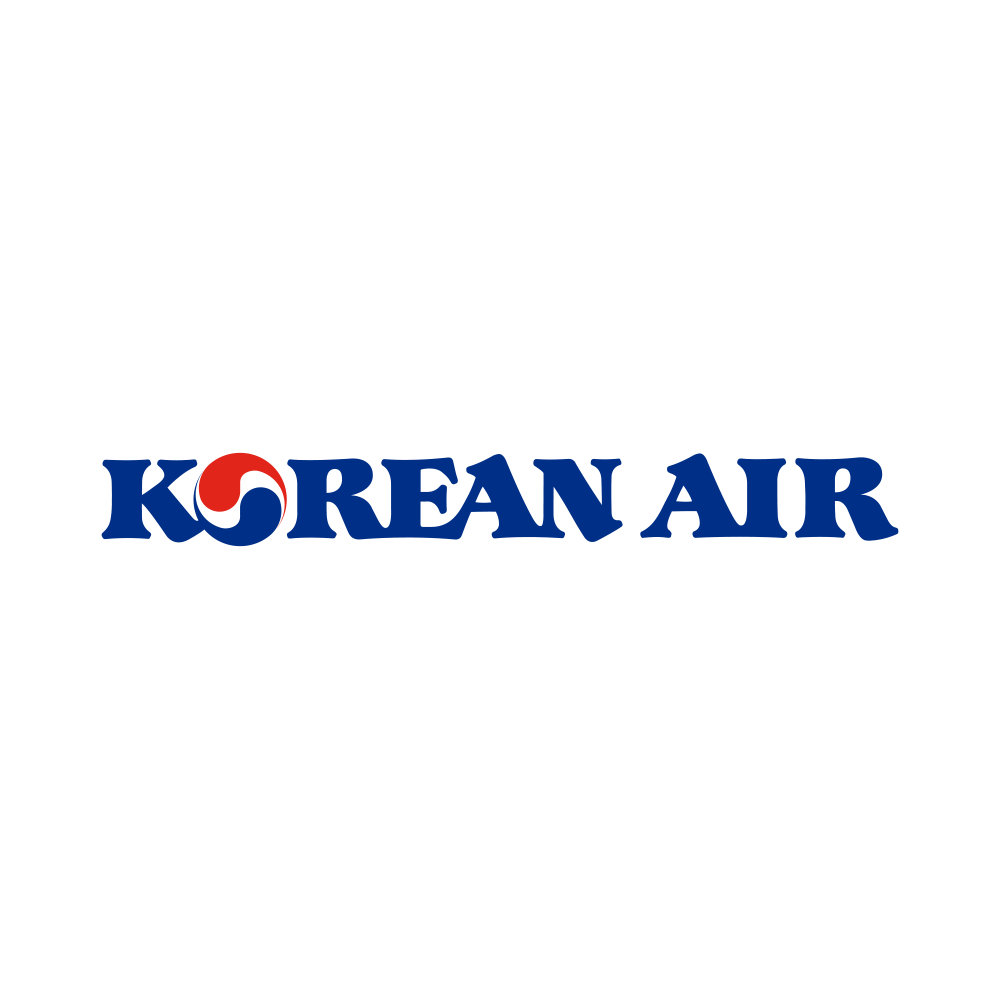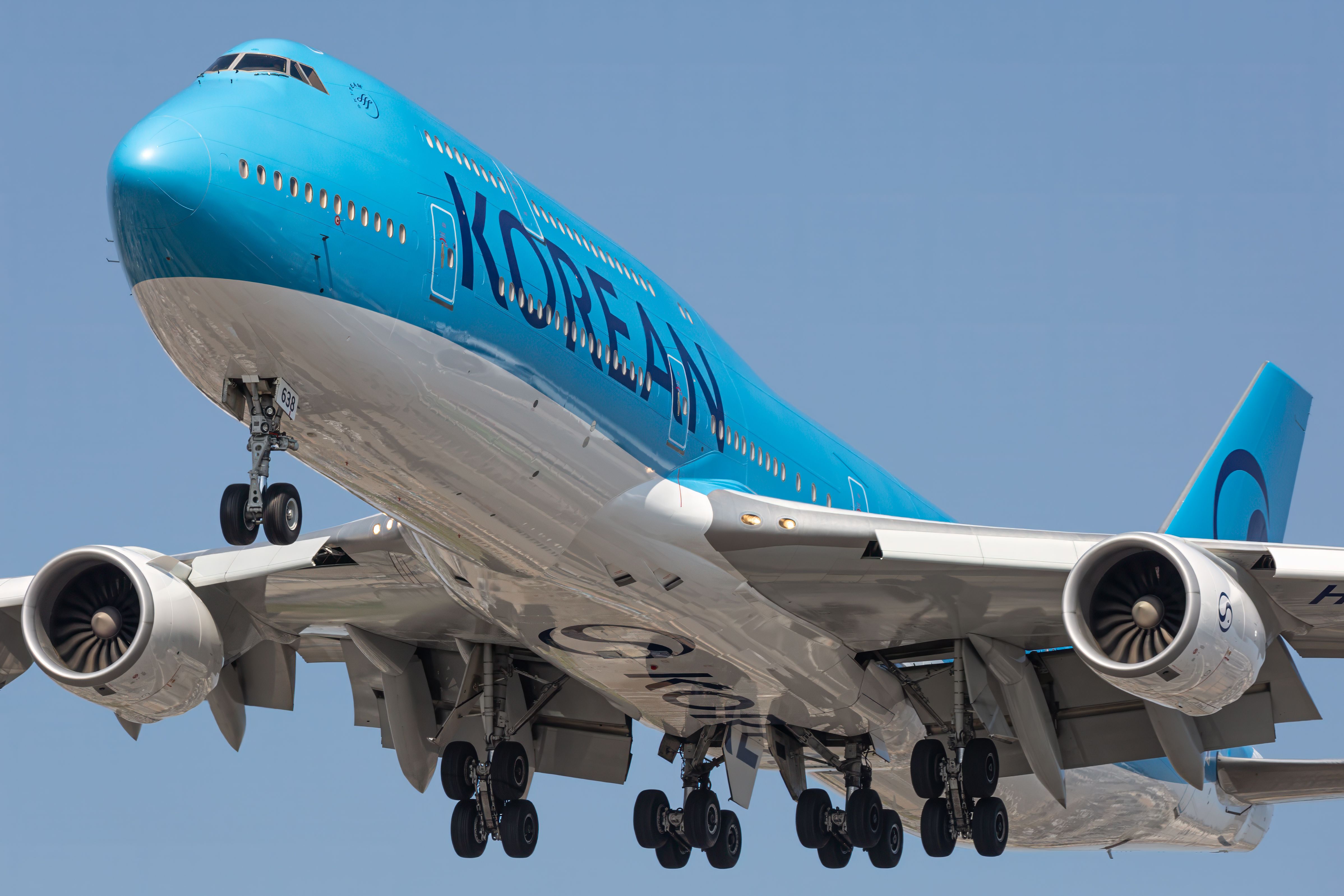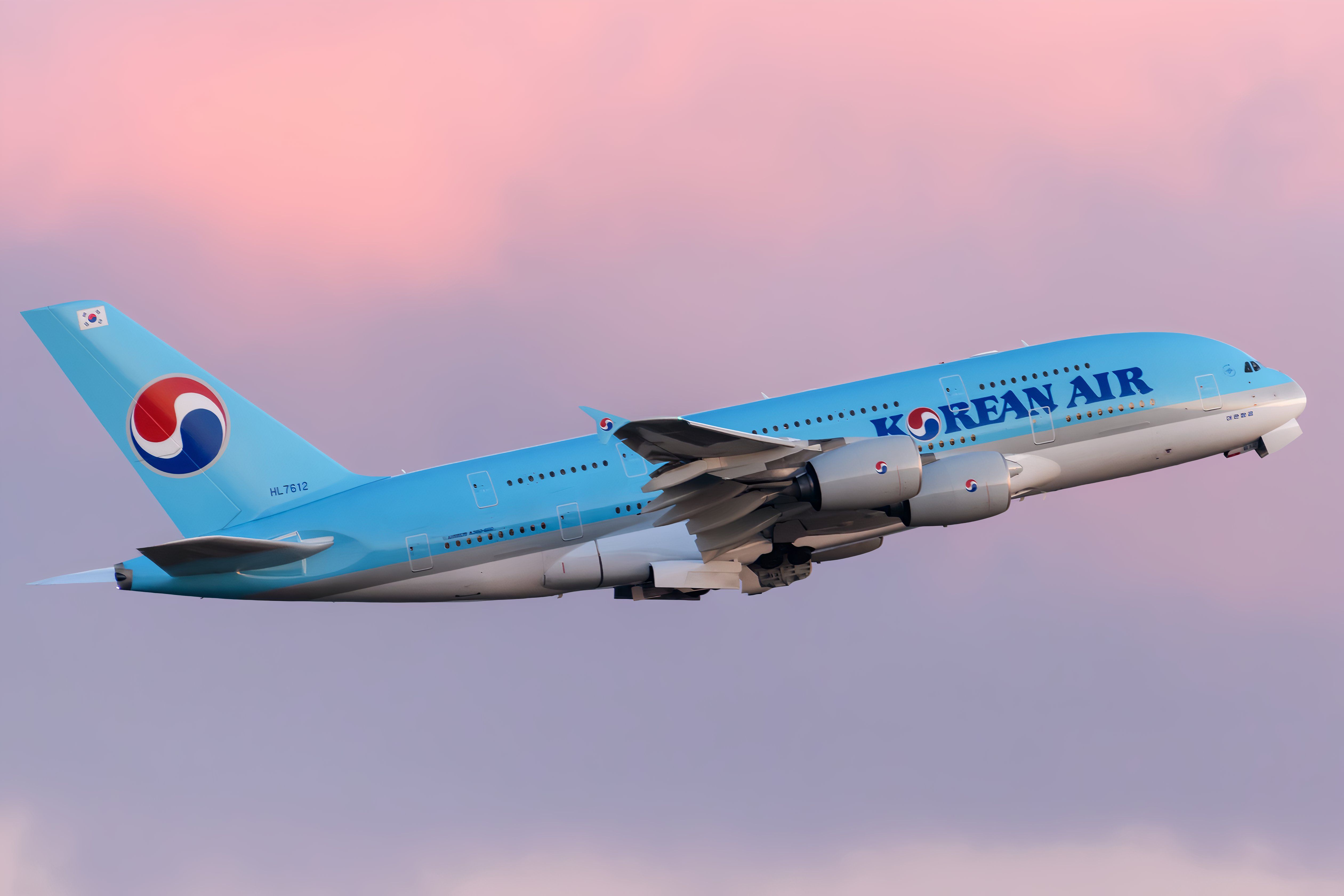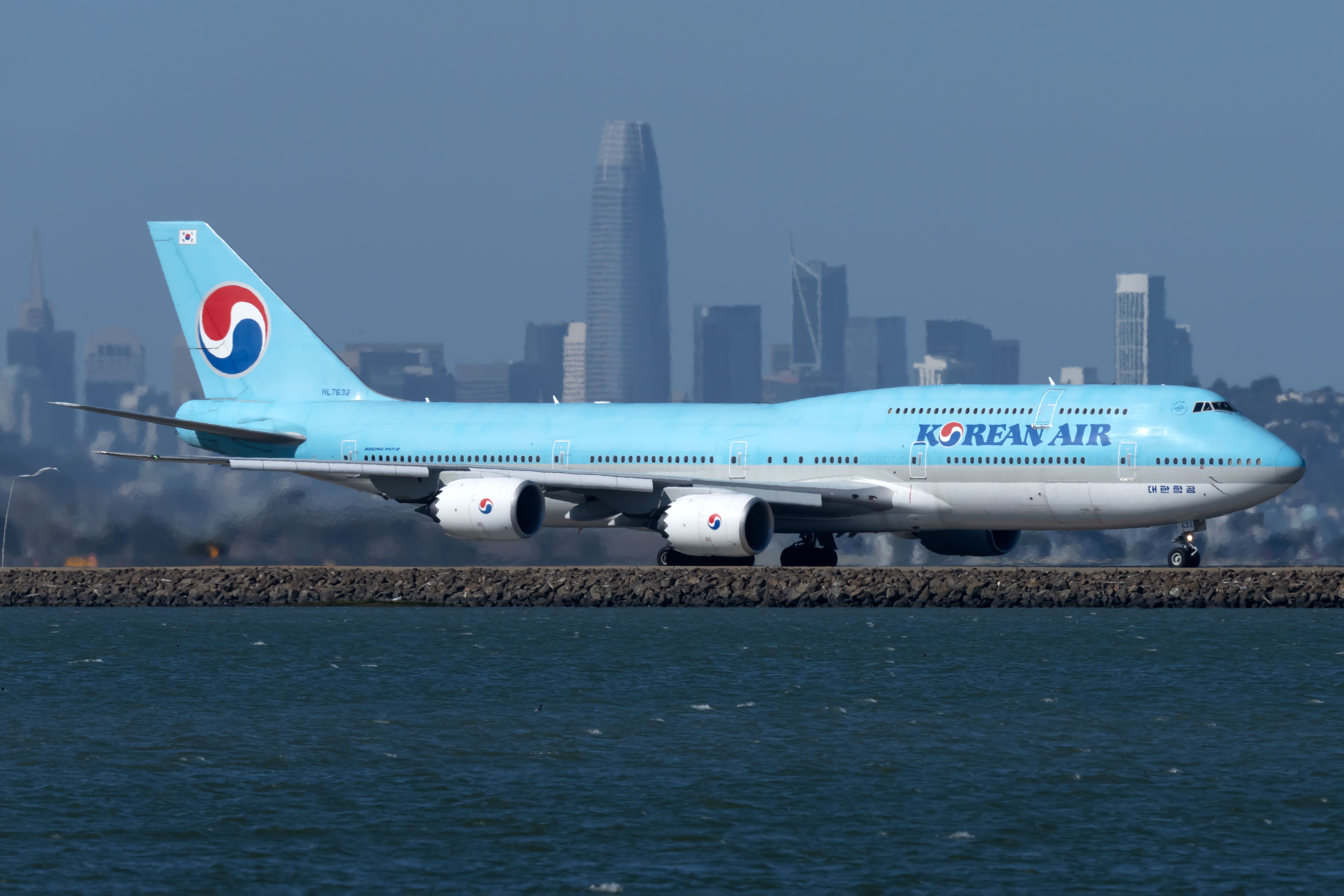Ěýpartner, Korean Air, will have to continue operating its Airbus A380 and Boeing 747-8 double deckers for a few more years, as the airline continues to grapple with ongoing aircraft delivery delays. The airline's Chief Executive Officer,Ěý, had hoped toĚý.
ĚýDelivery Delays Postpone This Airlines' Airbus A380 & Boeing 747 Retirements

- Airline Type
- Hub(s)
- Year Founded
- 1969
- Alliance
- CEO
- Walter Cho
- Ěý
- Ěý
Ěý
According to data fromĚý, the Korean Air has a total of six Airbus A380s in its fleet, with an average age of 11.6 years. This is similar to its 18 Boeing 747-8, which have been operating for approximately 11.9 years, and Boeing 777, of which it has 46 in the fleet, have been operating for 12.3 years.
The Queen Of The Skies Will Stick Around For A While Longer
 Photo:Ěý
Photo:Ěý
The airline's CEO has explained toĚýĚýthat the airline will continue to operate these aging aircraft for a while longer, due to continued delayed deliveries from both Airbus and Boeing, of which the airline claims is still waiting for 20 from each manufacturer. With Korean already operating six of the A380 (two of which are parked according toĚý), once its merger is completed withĚý, this will see an additional eight Asiana superjumbos join the airline's fleet. It is yet to be determined if the airline will refresh the Star Alliance carriers' interior to match that of Korean Air.
What has made theĚýAirbus A380Ěýfor Korean unique is that it hosted two different bars for First and Business class passengers, and it also includes its own duty-free boutique, which is located at the rear of the lower deck. As for the Boeing 747-8, Korean remains just one of three airlines globally still operating the variant, alongsideĚýĚýandĚý. CEO Walter Cho said:
"The A380 has been in our fleet for about 12 years, and I had a plan to retire them. We are short by about 20 aircraft per manufacturer. That’s why the older A380s and 747-8s and the very old 777s are still flying… that’s why we have not retired them yet. As soon as we get new aeroplanes, as soon as the next opportunity comes, those two airplanes (A380s and 747s) will be phased out.”
Holding Down The Fort Until New Aircraft Arrive
 Photo: A Periam Photography | Shutterstock
Photo: A Periam Photography | Shutterstock
Currently, Korean Air operates a fleet of more than 160 aircraft across its passenger, cargo, and Business Jet fleet. Focusing onĚý, the carrier has more than 40 of A321neo on order, with another fourĚýĚýand 27 Airbus A350-1000. Once these aircraft arrive, this will see the exit of the current aging aircraft.
ForĚý, Korean Air is currently awaiting more than 24 737 MAX 8, 20 Boeing 777-9, six 787-9, and 31 787-10. These aircraft have various delivery targets up until 2028; however, in the meantime, to cater for ongoing passenger demand, the existing fourĚýBoeing 777-300ER, will all be retrofitted with the carrier's newĚý.
Remaining in the Korean Air fleet, includesĚýHL7644Ěý(serial number 60411), the last ever Boeing 747-8I ever built. This aircraft was delivered to the South Korean carrier on July 30, 2017, is eight years old, and is currently configured in a three-class layout with six first class, 48 business class, and 314 economy class seats.
Related
Korean Air is finalizing a $32.7B deal with Boeing and GE Aerospace, expanding its fleet and solidifying its position as a leading global airline.
A Snapshot Of The Korean Air Long-haul Network
 Photo: Vincenzo Pace | Simple Flying
Photo: Vincenzo Pace | Simple Flying
With a total of 66 active long-range aircraft (perĚý), this supports the carrier's extensive intercontinental network that steps from its hub at Incheon International Airport (ICN), the busiest airport in South Korea. The airline has an extensive number of codeshare agreements with airlines, including Alaska Airlines, Delta Air Lines (joint-venture), Hawaiian Airlines, and WestJet. These many services feed into the Korean Air network and support the carrier's robust local and international network.
FromĚý, direct year-round passenger services operate to Brisbane and Sydney (Australia), Vienna (Austria), Toronto and Vancouver (Canada), Prague (Czech Republic), Paris (France), Frankfurt (Germany), Budapest (Hungary), Milan and Rome (Italy), Amsterdam (Netherlands), Auckland (New Zealand), Lisbon (Portugal), Madrid (Spain), Zurich (Switzerland), Istanbul (Turkey), Dubai (United Arab Emirates), London Heathrow (United Kingdom), and Atlanta, Boston, Chicago, Dallas, Honolulu, Las Vegas, Los Angeles, New York JFK, San Francisco, Seattle, and Washington D.C. (United States).
Back home in South Korea, data fromĚýĚýconfirms that Korean Air contributes to the busiest domestic route in the world. Direct flights betweenĚýĚýsurpass more than 14 million seats per annum.
- Ěý
